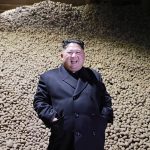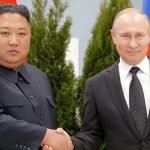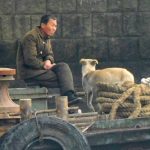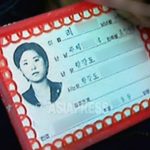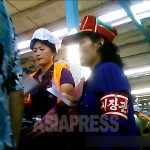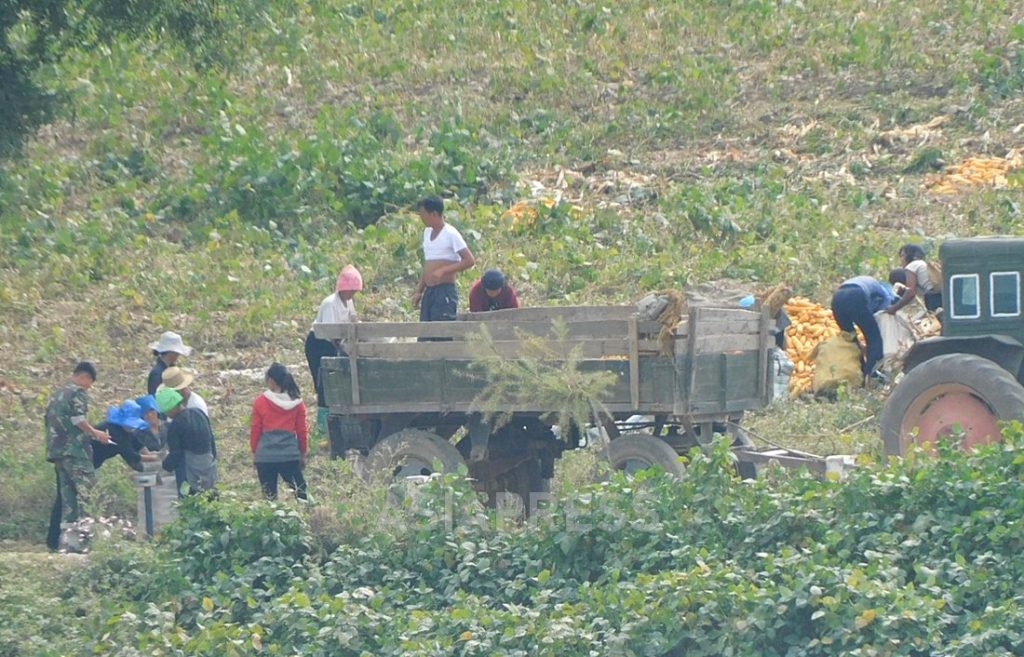
During the process of rationing out food at a collective farm in North Hamgyong Province, farmers accused the farm’s management of not handing out enough food, leading to protests and the deployment of local Ministry of Social Security riot police, according to an ASIAPRESS reporting partner. (JEON Sung-jun / KANG Ji-won)
◆ Farmers angrily protest unfair system
According to a reporting partner in North Hamgyong Province, a collective farm in the province experienced food-related unrest in early April. Farmers erupted in anger in protest against the farm’s management committee officials. The farm is a medium-sized farm in North Hamgyong Province with about 500 employees.
The unrest began when the farmers rebelled against a farm rationing system that ignored the conditions on the farm.
◆ What is North Korea’s farm distribution system?
Unlike factory laborers, who receive rations, farmers receive a lump sum of food in the fall at the end of the farming year to sustain them for the next year. In North Korea, this is referred to as the “farm rationing system."
North Korea’s national ration system nearly collapsed in the 1990s, which has meant that the farm rationing system has become virtually inoperable. Low agricultural production and the fact that rural areas prioritize harvests for various national programs, including the harvest of rice for the military, has led to this situation. As a result, most farmers don't get much food, and even if they do, it's not enough to sustain them until the next year.
Under these circumstances, the number of people in the countryside who were unable to work due to hunger increased year by year, resulting in a vicious cycle of labor shortages during the farming season that negatively impacted agricultural productivity. That's why North Korea introduced the farm rationing system in 2019. In a nutshell, farms store three months of food for the next year's farming season (April-June) and then distribute it to households in the spring. (There may be differences in the timing and status of the system between regions.)
The farm rationing system seems to have been designed to prevent people from missing work during the farming season. If food is distributed all at once, farmers would run out of food before spring. However, ASIAPRESS was unable to confirm whether this is nationwide policy or limited to a few farms in the northern region.
◆ Farmers erupt in anger upon given just one months’ worth of food instead of three
However, problems arose during the implementation of the rationing at the farm in North Hamgyong Province, the reporting partner said. When the rations were distributed in early April, what was supposed to be a three-month supply was only two months' worth of food.
"People thought they had food left on their farms, but when they were only given one months' worth, farmers protested."
In addition, the food was not stored properly, "so when farmers saw that the corn they were given was moldy, they were angry and erupted in anger," the reporting partner explained.
"Farmers were angry because they had been waiting for their rations, eating only two meals a day, but ended up with much less," the reporting partner said, adding, "Some people went to the farm management committee, yelling and screaming at them to give them their rice, and the Ministry of Social Security riot police were called in."
◆ Farm management hurries to quiet unrest
But the blame for the poor rations is not entirely at the feet of the farm’s management.
"They have to do various assignments (tasks handed down by higher authorities or cadres, bribes, etc.) and purchase farming materials for farm management, but they have nowhere to get money, so they resorted to rationing," said the reporting partner, emphasizing that the situation is unacceptable for farmers.
Meanwhile, the farm's management is in a hurry to get the situation under control while keeping an eye on local residents. As for the people who caused the disturbance, the reporting partner said, they were not questioned or arrested.
"The village party committee has also informed the farmers that it will be responsible for providing additional food supplies over fears of the issue getting out of hand."
This recent incident is due to the Kim regime's rural policies. Any new measures or policies will only be a stopgap in the state exploitation of farmers and urban exploitation of the countryside.
※ ASIAPRESS communicates with its reporting partners through Chinese cell phones smuggled into North Korea.
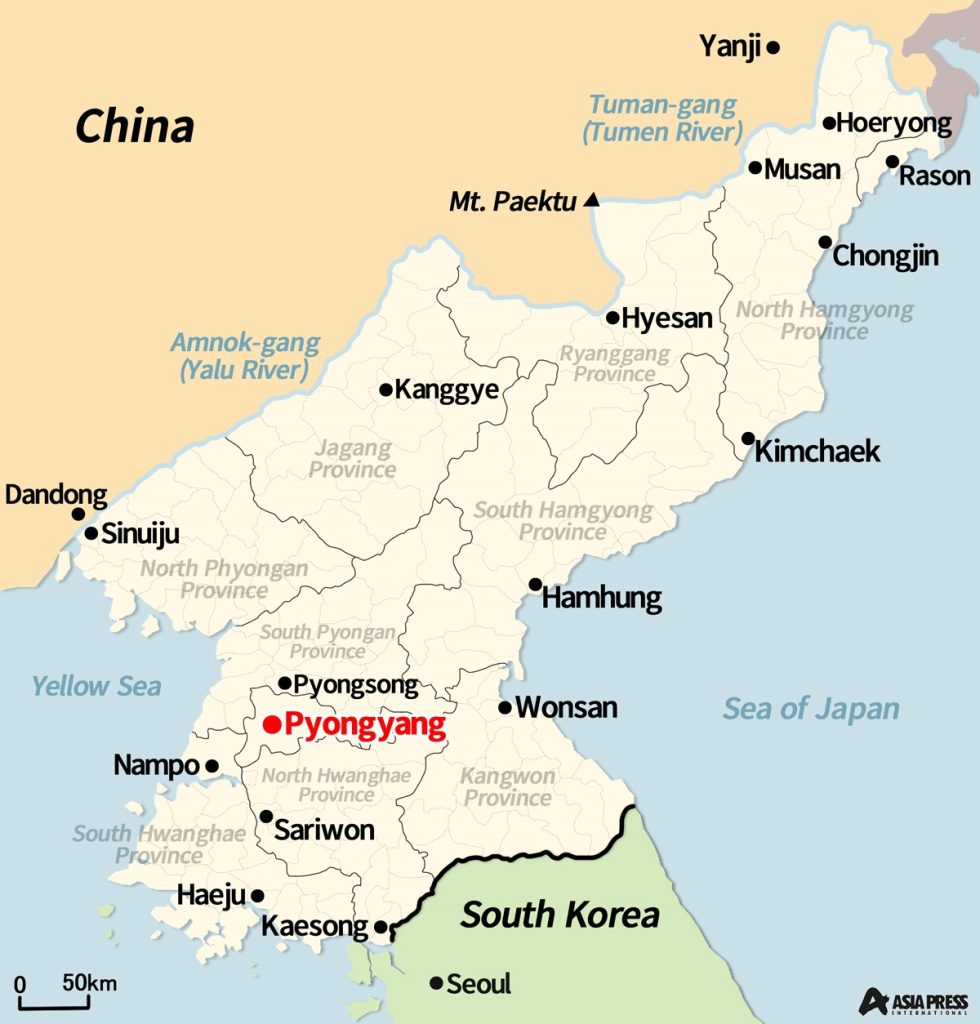
- <Inside N. Korea>Recruitment for the world's longest military service(1) This year 8 years for men, 5 years for women
- <Inside N. Korea> 'National Unified Price System' implemented on domestic products...Stores are given booklet showing prices in new system… Government aims to tighten control over economy
- <Inside N. Korea>Hungry elderly people flock to government office to demand rice, leading police to mobilize to put down unrest…Hyesan city
- <Inside N. Korea>State-led smuggling resumes in the Yalu River, sends seafood and copper ore to China, bringing in UN-sanctioned goods like cars and machinery
- <Inside N. Korea>Chinese RMB exchange rate surges, up 42.8% since start of year...National police agency warns individuals and businesses against using foreign currencies
